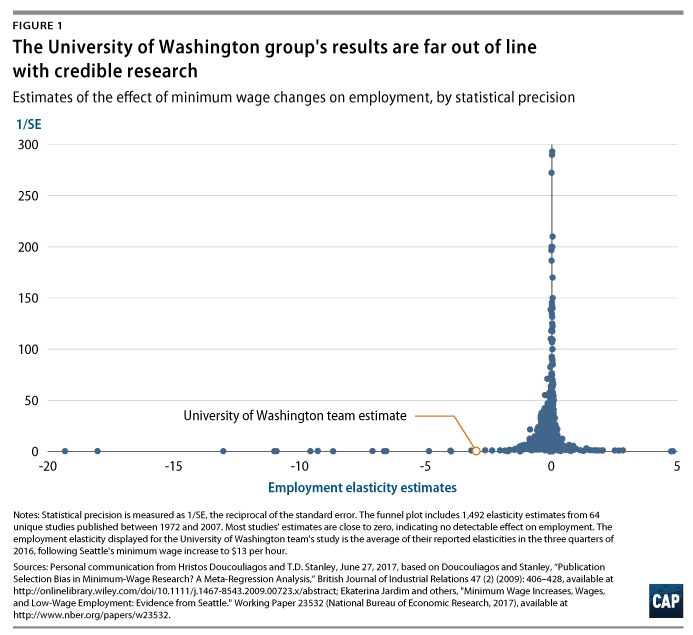Seattle's $15 Minimum Wage Linked to 6.9% Drop in Low-Wage Hours, Study Reveals

UW Study on Minimum Wage Impact Sparks Debate, City Seeks Rebuttals Amidst Contradictory Findings
Seattle, WA – A 2017 study by University of Washington (UW) researchers indicated that Seattle’s phased-in $15 per hour minimum wage led to a significant reduction in hours for low-wage workers, sparking immediate controversy and calls for alternative analyses. The study, an NBER working paper, found that the second phase-in of the wage increase to $13 per hour was associated with a 6.9 percent decrease in hours worked for employees earning below $19 per hour. This finding suggested that low-wage workers experienced a net loss in earnings despite higher hourly rates.
The research, conducted by Ekaterina Jardim, Mark C. Long, Robert Plotnick, Emma van Inwegen, Jacob Vigdor, and Hilary Wething, utilized administrative data from Washington State. It concluded that while hourly wages for these workers rose by approximately 3.2 percent, the substantial reduction in hours resulted in an average monthly earnings loss of $74 per worker. This implied a labor demand elasticity of roughly -2.6, indicating that for every dollar gained in higher hourly wages, low-wage workers lost more than two dollars in forgone employment opportunities.
The contentious nature of these findings was highlighted by a social media post from user "eigenrobot," who stated, "when seattle implemented a $15/hr minimum wage they asked some ppl at UW to do a study of the employment effects... the big paper dropped in 2017 and found huge disemployment effects so the city immediately disavowed it and ran to amherst for a rebuttal." While a direct "Amherst rebuttal" study was not widely reported, the city's reaction underscored its discomfort with the UW's conclusions.
Critics, including economists from the University of California, Berkeley, and the Economic Policy Institute (EPI), challenged the UW study's methodology. They argued that the UW research might have overlooked certain segments of the low-wage workforce, such as employees in multi-establishment businesses, and that its comparison group did not fully account for Seattle's unique economic boom during the period. A UC-Berkeley study, for example, focusing specifically on the food service industry, reported no negative employment effects from the wage increase.
The conflicting results from various academic institutions reflect the complex economic dynamics surrounding minimum wage policies. While the UW study pointed to significant disemployment effects, other analyses presented different conclusions, fueling an ongoing national debate about the true impact of substantial minimum wage hikes on employment and worker welfare.